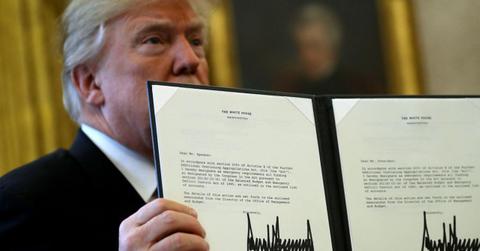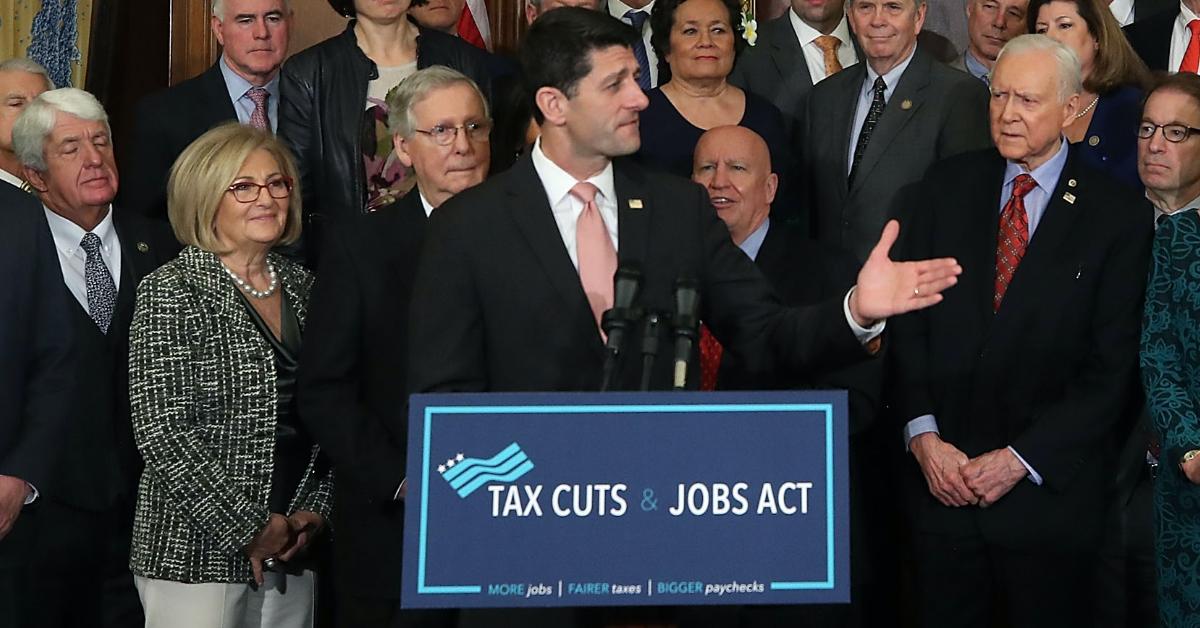When Did Trump's Tax Cuts Take Effect? Tax Cuts and Jobs Act Explained
When did Trump’s tax cuts take effect, who benefited, and do corporate tax cuts create jobs? Read more about the impact of the Tax Cuts and Jobs Act of 2017.
Sept. 8 2020, Updated 4:01 p.m. ET

With the 2020 election coming up, the Tax Cuts and Jobs Act of 2017 is back in the spotlight as some of the most impactful legislation from President Donald Trump’s time in the Oval Office. The act was reported to be the biggest U.S. tax code reform since 1986, but not everyone saw savings when Trump’s tax cuts took effect.
When did the Tax Cuts and Jobs Act take effect?
President Trump signed the Tax Cuts and Jobs Act of 2017 (TCJA) into law on December 22, 2017. Most of the changes took effect on January 1, 2018. However, some TCJA provisions went into effect in 2019, while others were applied retroactively.
For example, the TCJA repealed the Affordable Care Act’s individual mandate by canceling the penalty as of 2019. In terms of retroactive changes, the act also lowered the adjusted gross income (AGI) threshold for medical expense tax deductions for 2017.
Who benefited?

According to Policygenius, the average tax refund was $90 higher in 2018 than it was in 2017. The biggest beneficiaries of the TCJA seemed to be businesses and high-income taxpayers — especially those with an AGI of $200,000 or more. Low-income taxpayers saw the least savings.
Why the disparity? High-income taxpayers benefited from the cumulative effect of the TCJA lowering six of the seven tax brackets. The bracket that remained unchanged was the 10 percent bracket, which means that some low-income taxpayers didn’t see tax cuts.
When do the tax cuts expire?
Some of the tax cuts have already expired. For example, the previously mentioned medical expense deduction change expired at the end of 2018.
Other TCJA provisions will expire at the ends of 2020, 2021, and 2022. Taxpayers will likely see the most change on December 31, 2025. The Tax Foundation said, “Twenty-three provisions from the Tax Cuts and Jobs Act directly relating to individual income taxes will expire, meaning most taxpayers will see a tax hike unless some or all provisions are extended.”
The provisions scheduled to expire at the end of 2025 include the increased standard deduction, the reduction of individual income rates, the increased child tax credit, and the increased AMT exemption and phaseout threshold.
Do corporate tax cuts create jobs?
President Trump said that his tax reforms would “be a job creator like we haven’t seen since Ronald Reagan.” However, in 2014, New York University economists Alexander Ljungqvist and Michael Smolyansky said that they found “little evidence that corporate tax cuts boost economic activity unless implemented during recessions when they lead to significant increases in employment and income.”
According to a CNBC report, a 2017 analysis by the Institute for Policy Studies found that among 92 publicly held U.S. corporations — corporations that posted profits every year from 2008 to 2015 and paid less than 20 percent of their earnings in federal income tax — more than half actually cut back on jobs during that period. Many of the companies used tax savings to buy back stock, while CEO pay among all 92 companies rose 18 percent.
